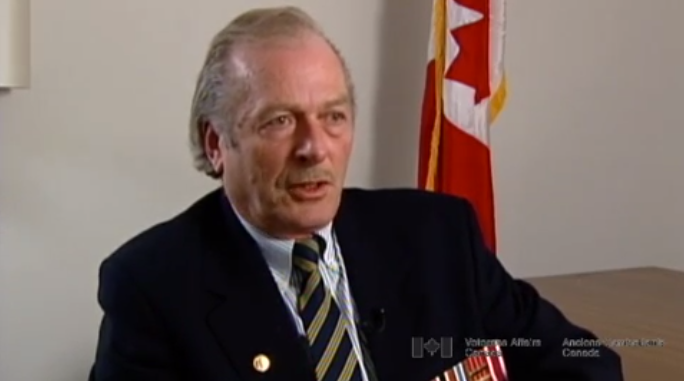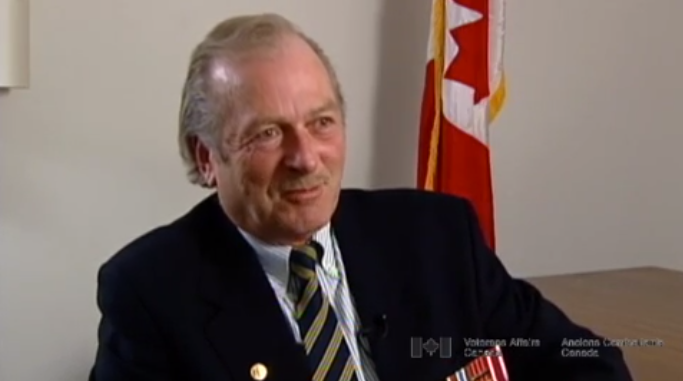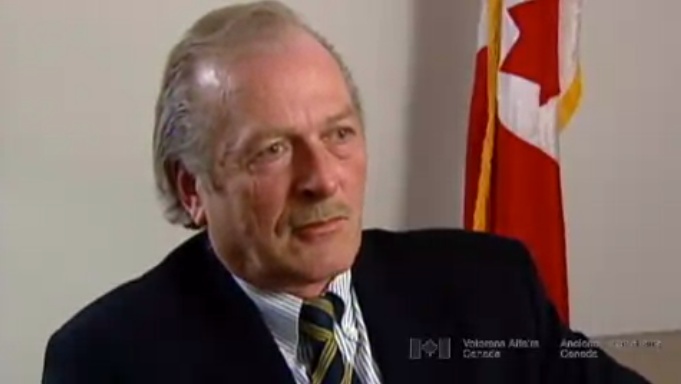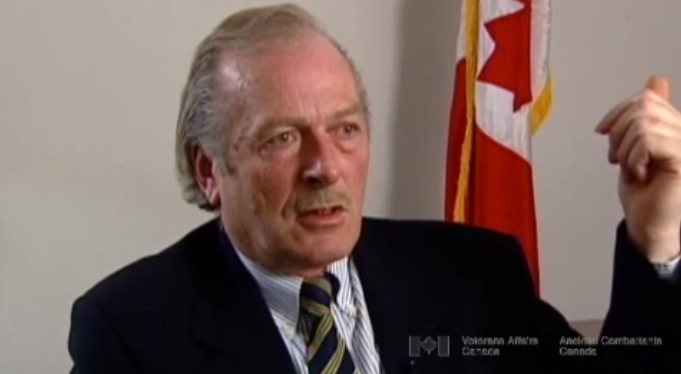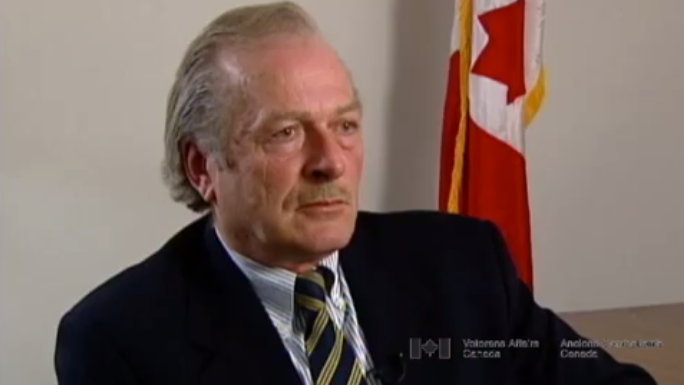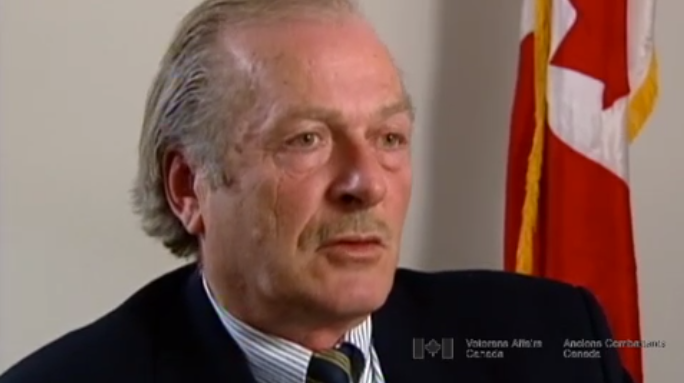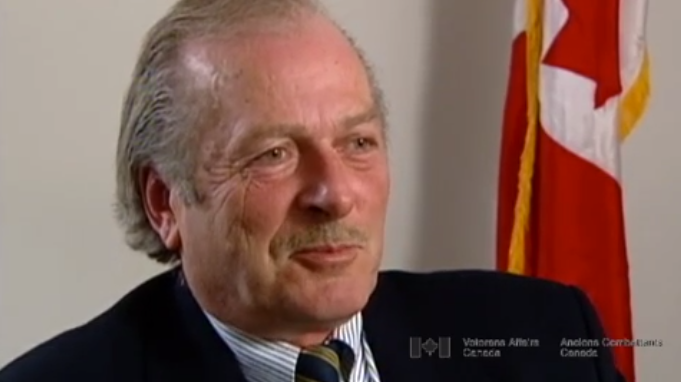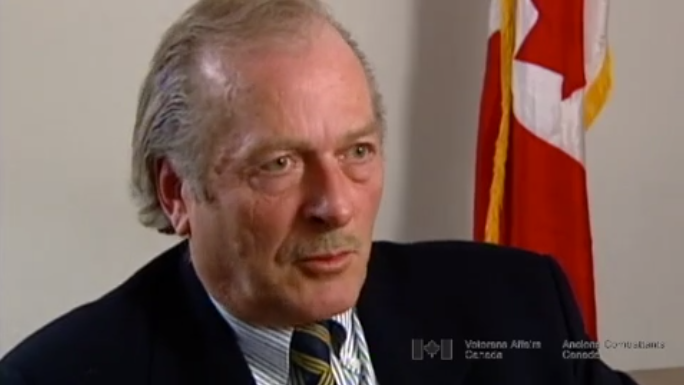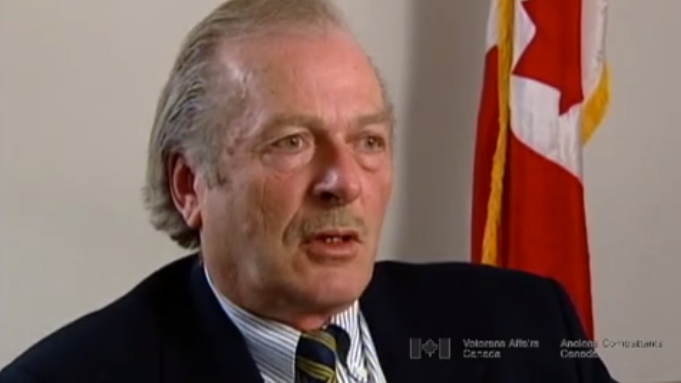Interviewer: Did you have an opportunity to meet any people who
lived there? Normally, regularly, I don't like to
use the term native but...
Yes. Met a quite a number of Canadian and Americans that were
living there as civilians, as teachers, nurses, that type of
employment that were there. Met a number of Canadians that
worked at the embassy in Riyadh. Met a number of Saudi people,
they were very appreciative of Canada's involvement and even
more so than the Americans. I have my own story about meeting
one of the Saudi princes, well prince, not princess. But, did,
and was invited to one of their meals that they call a "goat
grab" that I went to, and it was rather unique. It turned out as
I found out afterwards that the gentleman was one of the prince,
princes, and I was one of the first ones of the coalition forces
during Desert Shield to be invited to a goat grab. It's a pretty
significant thing to them, I had no idea what it was at the time
and didn't find out until afterwards and fortunately hadn't
embarrassed Canada too much at that time. Pretty much routine
when we'd be walking around the Riyadh base and a Saudi military
person would see us with our Canadian epaulets on and the
Canadian flag on to really make a point of talking to us and
thanking us for being there with the coalition forces. A lot
more than they did the American forces, very seldom would you
see that happen with them. They certainly did with the
Canadians, they certainly made us feel welcome, if you will.
Interviewer: Did your American fellow soldiers that were there,
fellow airmen, how did they feel about that?
It's a feeling that they pretty much accept throughout the world
if you will, they, there's places in the world that the
Americans are not very well liked. Canada, fortunately has
always enjoyed a good reputation, we always have, our military
has always enjoyed that same type of reputation, and we're
treated accordingly. That's not to say that the Saudi's
mistreated the Americans at all, I don't mean that, I mean, I
simply mean that they would go out of their way to welcome a
Canadian and make a Canadian feel appreciated if you will.
Interviewer: You mentioned a goat grab, what's a goat grab?
You probably don't wanna know unless you've already had your
lunch. They in the morning and in afternoon when they have their
break, their tea and crumpets if you will, great long tables on
the Saudi squadron, and they have rice and pita bread and pieces
of chicken, that sort of stuff as their lunch, if you will. At
the end of the table is a goat's head, a cooked goat's head with
the eyes in tact. And I was walking down the corridor one day
and this Saudi colonel had, turned out to be a Saudi prince had
stopped me, welcomed me as a Canadian, hadn't realized that
there were that many Canadians around and there were four or
five of us walking around at the time. And asked me to join him
at this goat grab. I had no idea what it was so I said, " Sure,
glad to." We were walking through the head of the line and
everyone was waiting until we went through and again I had no
idea of what he was, who he was. And when we get to the end of
the table with the goat's head on it he's picking pieces of the
goat's head off and putting it on his plate and offers me first
choice on the eye. And, "I don't think so". And he took one, and
I turned to the gentleman standing behind me which was another
Saudi colonel and you know, "If you want to, go ahead." He sort
of encouraged me to take it but I was quite reluctant to. He
did, and it's a delicacy I guess. And I found out what a goat
grab was. My American boss, the colonel told me afterwards
exactly what it was and exactly what I should have done if you
will. But in hindsight I still don't think I would have plucked
out that eye and eaten it. It just didn't seem very appetizing.



